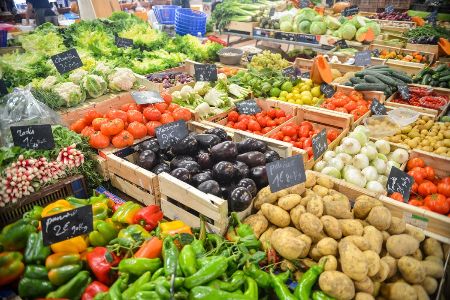
Well – if you ask me – organic every month, but the Soil Association are claiming September, since 2020, as Organic month and using it to educate people as to how and why they should go organic, particularly in food, but that also applies to skincare and household cleaning products, amongst other things.
Check out what they’re posting this month here:
https://www.soilassociation.org/organic-living/organic-september
What exactly does the word “organic” mean, especially when we are talking about products that we use, whether food or skincare?
When we see the word Organic, it can be a little deceiving. Sometimes it says “made from organic ingredients” which may only mean that SOME of the ingredients are organic. On food products – for humans and animals – look for the USDA Organic label. Providing their certification is actually up to date, use of this label means that they have passed a rigorous testing period. Organic products are grown and processed under a set of strict ecological regulations. Soil that the products are grown in has to have been pesticide and chemical free for at least 3 years.
Organic always means:
- Fewer pesticides and toxic chemicals
- No artificial colours & preservatives
- The highest standards of animal welfare
- No routine use of antibiotics
- GM Free
- Skincare products are never tested on animals
- All ingredients are rigorously checked, sustainably sourced and traceable.
- Use only natural colours and fragrances from plants and flowers
- Green chemistry principles are followed, minimising the environmental impact of ingredients and products. The creation of waste during the manufacturing process is also minimised.
- Restricted use of petrochemical ingredients
- The manufacturing premises are inspected annually
Did you know that over 320 pesticides can be routinely used in non-organic farming and are often present in non-organic food. That means that even if you vigorously wash your food before you cook it, you are still consuming pesticides at every meal.
If you didn’t see this Huffington Post report when it came out in May 2015, take a look at it now. (http://www.huffingtonpost.com/2015/05/14/the-organic-effect_n_7244000.html) In the Healthy Living Section, “What happened after one family went organic for just two weeks”.
In brief, it describes an experiment run by a Swedish food supermarket chain on a family who ate “regular”, non-organic food. The levels of pesticides tested in all of them was high, but after just two weeks of eating organic food, all members of the family had significantly reduced levels of pesticides (poisons) in their bodies.
Organic means the very highest standards of animal welfare. Organic animals are truly free range and are reared without the routine use of drugs, antibiotics and wormers. Also good for you as those harmful chemicals will not be passed on to you too.
I am sure you are aware of the national outcry at the superbugs resistant to all known antibiotics. Even large producers like Tyson have finally succumbed to not using antibiotics as a precautionary measure. Those antibiotics are passed on from animal to human and as a result we have the antibiotic superbug crisis we see today. Animals that are allowed to graze out in the pasture, as nature intended, do not need all those drugs.
Organic farming is better for the planet. Organic means working with nature, not against it. No system of farming does more to reduce greenhouse gas emissions from agriculture, or protect natural resources like fresh water and healthy soils.
Organic is higher in nutrients. Research published in the British Journal of Nutrition found significant differences between organic and non-organic farming. For every 3 portions of organic produce you eat, you would have to eat 5 of non-organic in order to get the same amount of nutritional value. So you need to eat (and buy) less in order to eat well.
Organic farming combats climate change. The impact of switching to organic farming could save 64 million tonnes of carbon over 20 years across all UK cultivated land – the equivalent of taking nearly a million family cars off the road! Imagine what it could do in the US!
Organic farms are havens for wild life, particularly the all important pollinators. They provide homes for bees, birds and butterflies – there is up to 50% more wildlife on organic farms!
If all that is not enough reasons to go organic, how about this last one – it just tastes better! Especially if you’ve grown it yourself.
